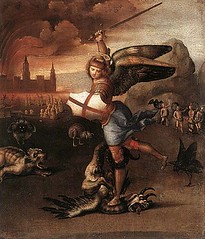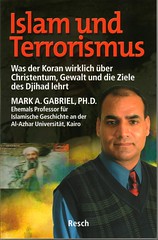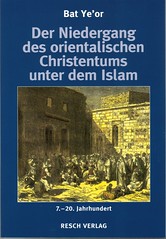Dear Muslim Friends, As-salámu ‘aláikum!
1. I give heartfelt praise to Almighty God for the grace of this meeting. I am most grateful for your warm welcome, in the tradition of hospitality so cherished by the people of this region. I thank especially the Minister of the Waqf and the Grand Mufti for their gracious greetings, which put into words the great yearning for peace which fills the hearts of all people of good will. My Jubilee Pilgrimage has been marked by important meetings with Muslim leaders in Cairo and Jerusalem, and now I am deeply moved to be your guest here in the great Umayyad Mosque, so rich in religious history. Your land is dear to Christians: here our religion has known vital moments of its growth and doctrinal development, and here are found Christian communities which have lived in peace and harmony with their Muslim neighbours for many centuries.
2. We are meeting close to what both Christians and Muslims regard as the tomb of John the Baptist, known as Yahya in the Muslim tradition. The son of Zechariah is a figure of prime importance in the history of Christianity, for he was the Precursor who prepared the way for Christ. John’s life, wholly dedicated to God, was crowned by martyrdom. May his witness enlighten all who venerate his memory here, so that they -- and we too -- may understand that life’s great task is to seek God’s truth and justice. The fact that we are meeting in this renowned place of prayer reminds us that man is a spiritual being, called to acknowledge and respect the absolute priority of God in all things. Christians and Muslims agree that the encounter with God in prayer is the necessary nourishment of our souls, without which our hearts wither and our will no longer strives for good but succumbs to evil.
3. Both Muslims and Christians prize their places of prayer, as oases where they meet the All Merciful God on the journey to eternal life, and where they meet their brothers and sisters in the bond of religion. When, on the occasion of weddings or funerals or other celebrations, Christians and Muslims remain in silent respect at the other’s prayer, they bear witness to what unites them, without disguising or denying the things that separate.
It is in mosques and churches that the Muslim and Christian communities shape their religious identity, and it is there that the young receive a significant part of their religious education. What sense of identity is instilled in young Christians and young Muslims in our churches and mosques? It is my ardent hope that Muslim and Christian religious leaders and teachers will present our two great religious communities as communities in respectful dialogue, never more as communities in conflict. It is crucial for the young to be taught the ways of respect and understanding, so that they will not be led to misuse religion itself to promote or justify hatred and violence. Violence destroys the image of the Creator in his creatures, and should never be considered as the fruit of religious conviction.
4. I truly hope that our meeting today in the Umayyad Mosque will signal our determination to advance interreligious dialogue between the Catholic Church and Islam. This dialogue has gained momentum in recent decades; and today we can be grateful for the road we have travelled together so far. At the highest level, the Pontifical Council for Interreligious Dialogue represents the Catholic Church in this task. For more than thirty years the Council has sent a message to Muslims on the occasion of Îd al-Fitr at the close of Ramadan, and I am very happy that this gesture has been welcomed by many Muslims as a sign of growing friendship between us. In recent years the Council has established a liaison committee with international Islamic Organizations, and also with al-Azhar in Egypt, which I had the pleasure of visiting last year. It is important that Muslims and Christians continue to explore philosophical and theological questions together, in order to come to a more objective and comprehensive knowledge of each others’ religious beliefs. Better mutual understanding will surely lead, at the practical level, to a new way of presenting our two religions not in opposition, as has happened too often in the past, but in partnership for the good of the human family. Interreligious dialogue is most effective when it springs from the experience of "living with each other" from day to day within the same community and culture. In Syria, Christians and Muslims have lived side by side for centuries, and a rich dialogue of life has gone on unceasingly. Every individual and every family knows moments of harmony, and other moments when dialogue has broken down. The positive experiences must strengthen our communities in the hope of peace; and the negative experiences should not be allowed to undermine that hope. For all the times that Muslims and Christians have offended one another, we need to seek forgiveness from the Almighty and to offer each other forgiveness. Jesus teaches us that we must pardon others’ offences if God is to pardon us our sins (cf. Mt 6:14). As members of the one human family and as believers, we have obligations to the common good, to justice and to solidarity. Interreligious dialogue will lead to many forms of cooperation, especially in responding to the duty to care for the poor and the weak. These are the signs that our worship of God is genuine.
5. As we make our way through life towards our heavenly destiny, Christians feel the company of Mary, the Mother of Jesus; and Islam too pays tribute to Mary and hails her as "chosen above the women of the world" (Quran, III:42). The Virgin of Nazareth, the Lady of Saydnâya, has taught us that God protects the humble and "scatters the proud in the imagination of their hearts" (Lk 1:51).
May the hearts of Christians and Muslims turn to one another with feelings of brotherhood and friendship, so that the Almighty may bless us with the peace which heaven alone can give. To the One, Merciful God be praise and glory for ever. Amen.
Quoted from Catholic Forum
Sunday, September 9, 2007
Pope John Paul II - Address at Omayyad Mosque of Damascus - 6 May 2001
Subscribe to:
Post Comments (Atom)




No comments:
Post a Comment